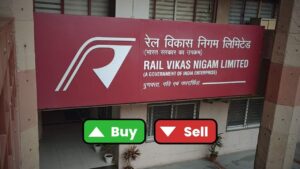As automated life cycle assessments (LCAs) become the standard for sustainability evaluations, ensuring high data quality remains a challenge. AI-driven tools enhance efficiency but risk propagating low-quality data throughout the LCA process. Prioritizing primary data collection, strengthening verification processes, and developing AI-powered validation tools are key to producing reliable assessments that, in turn, drive meaningful environmental impact.
Advancing LCA Quality Standards
In the evolving landscape of sustainability and corporate responsibility, LCAs play a crucial role in measuring a company’s environmental impact across its entire value chain. However, ensuring the accuracy and reliability of these assessments remains challenging, particularly in balancing the use of primary and secondary data. Zaid Thanawala, an expert in LCAs, has dedicated his career to improving data quality and actionability in sustainability assessments. He has pioneered frameworks that prioritize primary data share as a key quality indicator while integrating AI-driven automation to enhance efficiency and reliability.
Thanawala’s contributions have significantly influenced LCA quality assurance, emphasizing the importance of primary data in reducing uncertainty and mitigating greenwashing risks. His work has led to the development of methodologies that quantify the percentage of primary data in LCAs, enabling practitioners to assess specificity and credibility more effectively. By collaborating with industry stakeholders, he has helped refine LCA data quality standards. Thus strengthening corporate sustainability reporting.
By incorporating AI into automated LCAs, Thanawala has developed frameworks that streamline data collection, validation, and management, reducing reliance on generic secondary datasets. His expertise has directly impacted corporate decision-making, improved the precision of sustainability assessments, and reinforced transparency in environmental reporting.
Driving Impact Through Data-Driven Sustainability
At his organization, Thanawala has played a pivotal role in advancing LCA’s credibility by championing primary data quality as a core principle. By integrating AI-driven automation, he has enhanced the accuracy of sustainability reporting, thereby ensuring greater alignment with international standards. His initiatives have improved supplier engagement programs, promoted direct data collection, and reduced dependence on industry-average datasets.
Through these efforts, he has not only refined internal sustainability metrics but also influenced regulatory compliance and best practices for corporate environmental responsibility. “This work has led to significant improvements in data reliability, helping organizations make more informed decisions based on high-quality, auditable LCA data,” he noted.
Major Projects in LCA Innovation
Among Thanawala’s most impactful projects is the development of an AI-powered framework for evaluating LCA data quality, incorporating primary data share as a key reliability metric. This innovation addresses inconsistencies in automated LCAs, ensuring assessments are more accurate and actionable. Additionally, he has spearheaded initiatives to integrate more site-specific primary data from suppliers and production facilities, elevating the credibility of corporate life cycle inventories.
Overcoming Key Challenges in LCA Data Quality
One of the primary challenges Thanawala has tackled is the scarcity of comprehensive primary data, which often leads to uncertainty in sustainability assessments. By developing structured frameworks for supplier engagement, he has encouraged direct data collection, enhancing site-specific accuracy. Another significant challenge has been data inconsistency across LCA databases, which he addressed by implementing an AI-driven validation system that flags inconsistencies and improves metadata management, significantly reducing processing errors and streamlining automated workflows.
Additionally, organizational resistance to change has posed an obstacle to adopting higher-quality primary data collection. By demonstrating the significant benefits, such as reduced LCA uncertainty scores and improved emissions reporting accuracy, Thanawala successfully secured executive support for new data quality initiatives.
Future Trends in LCA and Sustainability
Thanawala envisions a future in which automated LCAs are governed by stricter verification standards, particularly as regulatory frameworks such as the EU’s Corporate Sustainability Reporting Directive (CSRD) and the SEC’s climate disclosure rules demand greater transparency. He predicts a shift toward real-time, dynamic LCAs powered by live IoT data and blockchain-verified supply chain inputs, replacing static, database-driven models with more precise environmental impact assessments.
He also highlights the role of AI and machine learning in revolutionizing LCA automation, cautioning against the risks of “black box” decision-making. He emphasizes the need for AI-powered LCAs to prioritize explainability, data validation, and uncertainty quantification. Furthermore, he advocates for increased supplier engagement, the adoption of hybrid LCA approaches that combine automation with expert validation, and the establishment of internal data quality standards to ensure sustainable and ethical AI-driven assessments.
The Path Forward for Corporate Sustainability through LCAs
Thanawala’s expertise and research continue to drive advancements in LCA quality and sustainability reporting. By reinforcing the importance of primary data sharing, integrating AI for enhanced automation, and promoting stricter verification frameworks, he is shaping the future of life cycle assessments. His work underscores the need for transparency, accuracy, and accountability in corporate sustainability strategies, ensuring that LCA methodologies evolve to reflect real-world environmental impacts rather than serving as mere compliance tools.
As organizations increasingly rely on LCAs to shape their sustainability initiatives, Thanawala’s insights offer a roadmap for ensuring data-driven decision-making and meaningful environmental progress. His vision is clear: move beyond “good enough” data toward rigorous, high-quality assessments that drive true sustainability impact.












